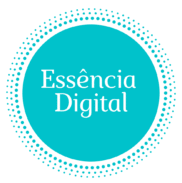In the world of freelancing, your technical skills—your coding, your writing, your design prowess—are what get you in the door. They are your ticket to the game. But what keeps you in the game, helps you win it, and builds a long-term, profitable career? That often comes down to a different set of skills, the ones that aren’t listed on your resume but are demonstrated in every client interaction: your emotional intelligence.
Emotional Intelligence (EQ) is the ability to perceive, understand, and manage your own emotions while also recognizing and influencing the emotions of others. In the structured environment of a traditional job, there are often buffers—managers, HR departments, and colleagues—to help navigate workplace dynamics. As a freelancer, you are on your own.
This makes EQ not just a “soft skill,” but a critical survival tool and your ultimate strategic advantage. It’s the key to navigating the inevitable rollercoaster of solo business ownership with grace and professionalism.
What Exactly is Emotional Intelligence (EQ)?
Emotional intelligence is a multifaceted skill set. Think of it as your ability to not only read yourself but also to “read the room,” even when the room is just a series of emails. It’s generally broken down into five core components:
- Self-Awareness: Understanding your personal operating system—your moods, motivations, strengths, and triggers.
- Self-Regulation: Acting as the calm center in the storm, managing your impulses and reactions, especially under pressure.
- Motivation: Fueling your own internal engine with optimism and a drive to achieve, even when faced with setbacks.
- Empathy: The secret to unlocking client loyalty by genuinely understanding and connecting with their needs and perspectives.
- Social Skills: Turning transactions into lasting professional relationships through clear communication and rapport-building.
Mastering these areas allows you to handle feedback without defensiveness, negotiate with confidence, and build a reputation that attracts high-quality clients.
Self-Awareness: The Foundation of a Stable Career
As a freelancer, you wear every hat in the company. You are the CEO, the marketing department, the project manager, and the customer service rep. Without a deep understanding of yourself, you’re essentially managing a team of one without knowing your employee’s needs.
A lack of self-awareness looks like:
- Repeatedly accepting projects that drain your energy and lead to burnout.
- Struggling with productivity because you’re forcing yourself to work during your least energetic hours.
- Reacting defensively to constructive feedback because it feels like a personal attack.
How to apply it: Conduct a personal productivity audit. For one week, track when you feel most focused and when you feel most drained. Align your most demanding tasks with your peak energy windows. This self-knowledge allows you to build a workflow that complements your nature instead of fighting against it.
Self-Regulation: Navigating the Freelance Rollercoaster
Freelancing is a sea of uncertainty. The “feast or famine” cycle is real. One month you’re juggling multiple projects, and the next you’re anxiously checking your inbox for new leads. Without the ability to regulate the stress, anxiety, and frustration that come with this instability, the ride can become overwhelming.
Emotional self-regulation in action means:
- When a client sends a critical email, you pause. You resist the urge to fire back an immediate, defensive reply. Instead, you step away, process the feedback objectively, and draft a calm, professional response.
- When a promising lead goes silent, you don’t spiral into panic. You send a single, polite follow-up and then shift your focus to other opportunities.
This emotional stability makes you a reliable and reassuring partner for clients, who are often juggling their own stresses.
Motivation: Your Internal Drive in a World Without Bosses
In a traditional job, motivation often comes from external sources: a manager’s praise, the possibility of a promotion, or team accountability. As a freelancer, you are your only source of motivation. You have to be your own cheerleader on the good days and your own coach on the bad days.
High-EQ freelancers fuel their own engine by:
- Connecting to their “why”: They know what drives them beyond money—be it creative freedom, flexibility, or a passion for their craft.
- Celebrating small wins: They acknowledge and feel good about finishing a difficult task or receiving positive feedback, which builds momentum.
- Reframing challenges: A rejected proposal isn’t a failure; it’s market feedback. A tough project is a chance to develop a new skill.
Empathy: The Ultimate Client Retention Tool
Many freelancers believe their technical skill is all that matters. But clients are human. They want to work with people who make them feel respected, heard, and understood. Empathy is the bridge between a good technical outcome and an outstanding client experience.
Empathy in freelancing looks like this:
- A client provides vague feedback, saying, “It just doesn’t feel right.” A low-EQ freelancer gets frustrated. A high-EQ freelancer gets curious, asking, “I understand. Can you tell me more about the feeling you’re hoping to achieve with this design?”
- You notice a client seems stressed in their communications, so you make your updates extra clear and concise to lighten their cognitive load.
Clients don’t just re-hire skilled freelancers; they re-hire freelancers who are easy and pleasant to work with. Empathy is what creates that experience.
Social Skills: Building Your Business One Conversation at a Time
Even if you work alone from a home office, freelancing is a social endeavor. Your success is built on a network of relationships with clients, colleagues, and collaborators. Strong social skills allow you to navigate this network with grace.
This includes:
- Negotiating with confidence: Clearly articulating your value and holding firm on your rates without being aggressive.
- Managing scope creep: Politely redirecting clients when a request falls outside the agreed-upon scope of work.
- Networking authentically: Building genuine connections by showing interest in others, rather than just trying to sell your services.
How to Actively Develop Your Emotional Intelligence
The best part about EQ is that, unlike IQ, it is not fixed. It is a skill that can be trained and developed over time.
- Start a Reflection Journal: At the end of each day, ask yourself: “What was one moment that triggered a strong emotion in me? Why? How did I respond?”
Conclusion
In a competitive global market, your technical skills are the price of entry. Your emotional intelligence is what sets you apart. It’s the force that allows you to build trust, inspire confidence, and navigate the complexities of business with poise. By investing in your EQ, you’re not just improving a “soft skill”—you’re building a more resilient, reputable, and profitable freelance business.

